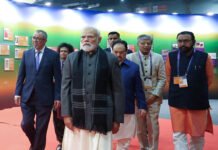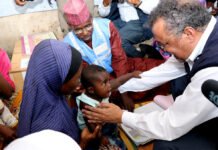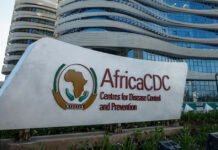INVC NEWS
As the world marks Breastfeeding Week amidst the COVID-19 pandemic spread, WHO and partners are focusing on increasing mother’s access to skilled breastfeeding support, calling on governments to protect and promote skilled counselling, a critical component of breastfeeding support.
‘Now, more than ever, countries and programmes must make efforts to ensure that every mother and family receive the guidance and support they need to breastfeed their children. Skilled breastfeeding counselling is key to improving breastfeeding rates and helps extend the duration of breastfeeding and promote exclusive breastfeeding.’ said Dr Poonam Khetrapal Singh, Regional Director, WHO South-East Asia.
As the COVID-19 pandemic continues to evolve and accelerate, WHO has taken decisive actions to promote, protect and support breastfeeding across countries in the South- East Asia Region. Recommendations on breastfeeding have been provided, with most countries adopting the guidance. WHO recommends that mothers with suspected or confirmed symptoms of COVID-19 should continue to breastfeed, with appropriate precautions such as wearing a mask and practicing respiratory hygiene. Mother and child should also stay together and practice skin to skin contact including kangaroo mother care, especially immediately after the birth of a child and while establishing breastfeeding – regardless of whether mother or child are suspected of or have confirmed symptoms of COVID-19.
These recommendations have been made considering the potential risks of COVID-19 infection in an infant, as well as the risks associated with not breastfeeding, the inappropriate use of infant formula milk and the protective effects of skin to skin contact. Mothers need to be counselled that the benefits of breastfeeding far outweigh the potential risk of transmission.
‘Without sufficient attention to breastfeeding support during the COVID-19 pandemic, the successes gained across these years by countries will not be sustained. The Covid-19 pandemic has resulted in health workers being diverted to respond to the pandemic and overburdened health systems. Infection prevention measures are also making it difficult for community counselling and mother-to-mother support services to continue. All these factors together are likely to diminish breastfeeding, unless innovative solutions are put in place to support mothers’ said Dr Poonam Khetrapal Singh.
Dr Khetrapal Singh added, ‘Countries should invest in making skilled breastfeeding counselling available through training of healthcare workers, with counselling made available as part of routine health service delivery and also through partnerships with civil society’
In South-East Asia Region, WHO has been advocating to countries to ensure breastfeeding as an essential component of nutrition and maternal care programmes, through initiatives to strengthen health systems by scaling up breastfeeding support in facilities providing maternity and newborn services, ensuring capacity-building of health care providers in being able to provide skilled breastfeeding support and promoting the implementation and monitoring of the Code of Marketing of Breast Milk Substitutes.
The World Breastfeeding Week 2020 is observed from 1 August to 7 August. This year WHO and UNICEF are together advocating for ‘Support breastfeeding for a healthier planet’.














